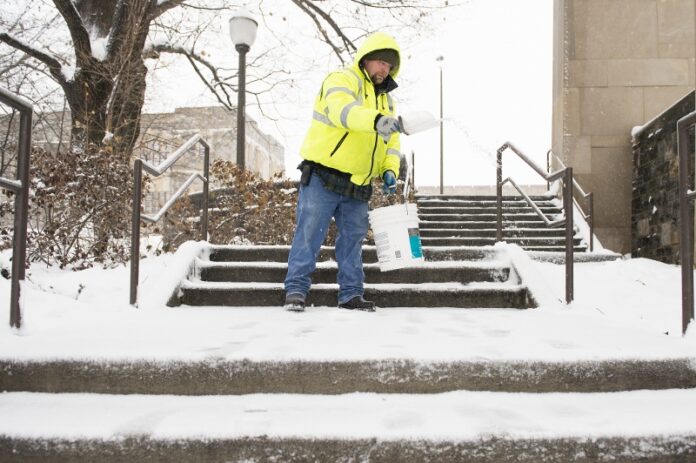
The Virginia Cooperative Extension has a number of tips to help people prepare for the winter and keep their families, property, and animals safe.
El Niño is coming and this year the warming of the equatorial eastern Pacific Ocean will likely affect the mid-Atlantic states to a degree not seen in 20 years. This has the potential to bring a wetter than normal winter for Virginia, according to the National Oceanic and Atmospheric Administration.
Temperatures in Virginia are projected to be close to normal along with other mid-Atlantic states. Because of the projected increase in precipitation, however, Virginia is vulnerable to significant winter conditions such as snow and ice this year.
Winter storms can bring extended periods of freezing temperatures, high winds, heavy snow accumulation, freezing rain, and ice accumulation. The effects of these storms can include power outages, downed trees and tree branches, blocked roadways, and broken water pipes. Power outages may last for several days and residents may also find themselves housebound.
Winterizing homes is a good first step in preparing for colder months when living in an area where snow, ice, and low temperatures are common. Make sure that your home is well insulated and that water lines are protected from freezing. Power outages are likely during winter storms and precaution should be taken to be ready for extended periods without electricity and heat sources, light sources, food, and water.
“Don’t forget to have contingency plans for pets and livestock as well. For livestock and horses, it is important to make sure that they have access to shelter, food, and water,” said Michael Martin, Virginia Cooperative Extension emergency response and preparedness coordinator. “The risk of frozen water in buckets and troughs is high in winter and must be monitored regularly. In addition, access to grazing may be hindered if grazing land is covered in snow or ice. Supplemental feeding of hay may be necessary for a period of time.”
Keep an emergency supply kit handy which will provide your family, pets, and livestock with at least three days of food and water provisions. Winter storms can last for several days, so provisions for more than three days is recommended.
Below are some other simple tips to remember in the case of a winter storm.
Winter storm do’s and don’ts
- ensuring food and water is available for at least three days for family members pets;
- keeping extra clothing, blankets, and sleeping bags on hand;
- keeping a battery, crank, or solar-powered weather radio on hand;
- insulating any exposed water pipes to help prevent freezing;
- developing a family communications plan;
- conserving heat by closing off unused rooms in your home;
- installing a battery powered carbon monoxide detector;
- keeping cars full of fuel and avoiding travel if possible;
- keeping generators outdoors and at least 20 feet away from doors, windows or vents;
- keeping the refrigerator and freezer doors closed as much as possible to maintain the cold temperature;
- avoiding overexertion by staying outside too long shoveling accumulated snow;
- avoiding use of space heaters such as gas log fire places, open flame wood fire places, or kerosene heaters while unattended or while sleeping;
- never using a generator indoors;
- never using a grill, camp stove, or charcoal burning device indoors;
- not leaving your pets outside unprotected; and
- not eating food from the freezer or refrigerator that has been thawed for more than two hours above 40 degrees Fahrenheit.
See these Extension publications for more specific tips on handling frozen and refrigerated foods.
Visit the Virginia Department of Emergency Management website for more information about preparing for winter storms.


